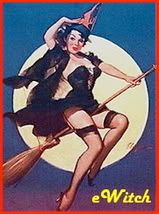Monday morning I arose early as I usually do. Just a bit before daybreak. The sun had just started to rise and the twilight before was still present. As the sun slowly made it way to break the horizon, the soft pink hue caused by the few clouds that lingered in the sky began to replace the present twilight. A stillness could be felt as I sat on the steps of my back porch, stroking one of my many cats who seemed to be glad just for the presence of human contact.
Midsummer was finally here. The Summer Solstice had begun. I knew it would be a day filled with sunshine for a longer period than any other day of the year. The peak of the year had been reached and after today the decent into the darkness would begin. I found it funny that we seldom think of the first day of summer in such a sense. The sun shines brightly and the days continue to run long even though a few minutes are shaved from its possession each day. When the time comes that we finally do realize the shortness of the sun’s presence we wonder where the time has gone and why we did not realize it sooner.
Yet for many we look at the days preceding Midsummer as the ones of light. For we know that it is the peak and there is no place left to go but down. Many gather on Midsummer’s eve to say their farewells to the Oak King who represents the waxing year; and welcome the Holly King which represents the waning year. Certain plants are gathered on this night by the light of the moon above, as they are believed to harbor magical healing powers at this time. Midsummer is also an opportune time to experience the fae. It is at this time that the Feast of the Fairies Festival takes place. It is a day when the portals between the two worlds are open and the fairy folk walk among us. Whoever welcomes them and shows them kindness, the fae in return will bless with wisdom and joy.
Hugh bonfires are built and burnt as a means to protect those who have joined to welcome the dawn and the Summer Solstice. It is believed that spirits, especially those who are evil, roam freely as the sun turns itself towards the south once more. The bonfires are a means of discouraging them from coming into the midst of the celebration. This is a good time for magic and purification rites as energies are strong.
I have always dreamed of being on the great mound at Stonehenge as Midsummer begins. To be among the many who gather to greet the dawn. At this time observers are allowed to approach the great stones. I have heard accounts of the electric energy which flows from them and would love the opportunity to experience its strength. A trip to the Glastonbury Festival which is held each year around the Solstice would also be a treat. Maybe someday.
As for this year, my celebration was a quiet one. A treat for the fairies was placed out under the elm in its usual place on Midsummer’s Eve. A few choice herbs were gathered as the sun set and the light of the moon could be seen. The next morning was one of silent meditation by me and the cat I previously mentioned. Together we welcomed the sun to frolic in its glory. We welcomed the Summer Solstice much like a cat and an older woman would; in silence, with a plate of milk and a stout cup of coffee.
As Summer spirals its longest dance,
May we be cleansed.
As nature shows bounty and beauty, m
May we be blessed.
Blessed Midsummer.





 Soft you now!
Soft you now!


